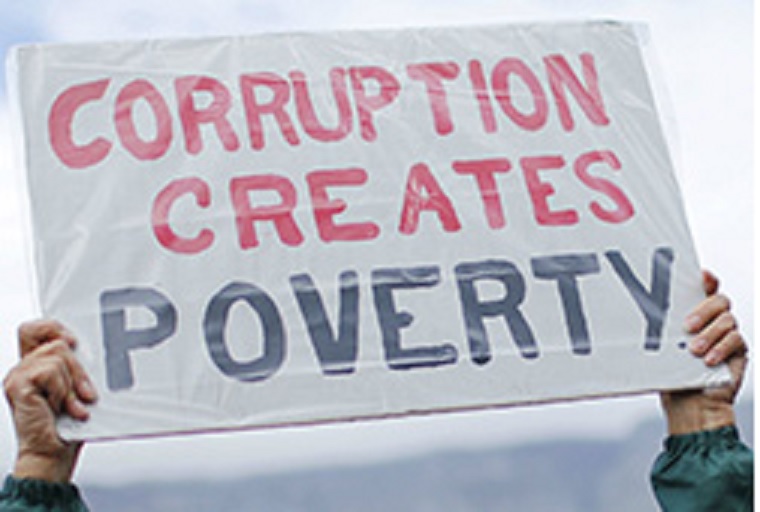2.5.5.3 Analysis by Programme
- Programme 1: Corporate Affairs
With respect to Programme 1, Corporate Affairs, a bid of ZWL$22,650,000, Treasury appropriated ZWL$42,480,000 yielding a positive variance of 87%. This favourable variance is explained by ZWL$36,950,000 allocated towards Construction Works, under the sub-programme Finance, Human Resources and Administration. No bid was made under Construction Works. This development is in line with the decentralisation objective.
- Programme 2: Combating Corruption
Relating to Programme 2, Combating Corruption, ZACC placed a bid of ZWL$45,250,000 and Treasury allocated ZWL$19,875,000, resulting in a negative variance of 56%. Under Combating Corruption, deliverables for the 2020 fiscal year include;
- Decentralisation to six provinces.
- Investigation of 330 cases of corruption.
- Process 45 civil forfeiture applications.
- Targeting ZWL300 million in asset recoveries.
- Establish Electronic Case Management System.
The Commission envisages that the appropriation by Treasury will enable them to achieve a third of the set deliverables. The current case management system is manual and is subject to manipulation and tampering. It was the Commissions plea that more resources be allocated towards combating corruption.
Continued next page
- Programme 3: Prevention of Corruption
In the Commission, Programme 3, Prevention of Corruption, has three sub-programmes, that is, Compliance Assurance, Corruption Awareness and Research.
Compliance Assurance
This sub-programme has a policy priority of systems review and compliance checks of Government Aided Projects; and development of the National Anti-Corruption Strategy. A bid of ZWL$12,840,000 was placed and Treasury only allocated ZWL$2,443,500, resulting in a sizable negative variance of 81%. Prevention of corruption is at the core of the Transitional Stabilisation Programme where the goals of Government include improved governance in the public and private sectors, as well as eradication of corruption. In line with this noble move, the 81% negative variance will seriously affect the Commission’s ability to monitor systems in Government aided projects, thus opening up a window for abuse of State funds. Adequate conduct of systems reviews and compliance checks will be grossly affected as a result.
Corruption Awareness
The goal of ZACC under this sub-programme is to roll out ZACC-NPA Anti-Corruption awareness campaign to all provinces, and to strengthen the collaboration and partnerships with key stakeholders. In line with these objectives, ZACC made a bid of ZWL$9,630,000 and Treasury appropriated ZWL$5,122,500, producing a negative variance of 47%. This negative variance will adversely affect the Commission’s awareness programme and ZACC will largely remain obscure to the public. If awareness campaigns are not rolled out en masse, corruption may continue going ahead as an uninformed public may not know what and what not to report. If incidence of corruption persists, the country’s perception index will remain high. According to Transparency International, Zimbabwe’s Corruption Perception Index is 22 points out of 100, placing her on a rank of 160 out of 180 countries. The highest ranked country Denmark, has a score of 88 points out of 100. The highest ranked African country is Botswana in position 34 with a corruption perception index of 61 points out of 100. Botswana’s success is attributed to a well resourced Anti-Corruption agency both in terms of financial as well as human resources. For a country with a population of just over two million, a team of 316 corruption investigators shows the seriousness they attach to fighting corruption. In contrast, Zimbabwe only has 34 corruption investigators in a country with an estimated population of 15 million. In addition, the Directorate on Corruption and Economic Crime of Botswana is armed with prosecuting powers whilst ZACC does not. Thus, a review of the Anti-Corruption Act [Chapter 9:12] is desperately needed over and above more financial resources.
Research
Research is at the centre of making great strides forward in any endeavour. In commerce, serious firms invest in research and development to remain competitive or to beat competition. By the same token, ZACC would need to have adequate financial resources in order to ascertain strengths, weaknesses, opportunities and threats to the fight against corruption. In that regard, ZACC has prioritised the following;
- Investigate leakages in the mining sector.
- Investigate weaknesses in the procurement system.
- Thoroughly check the management of Public Finances.
- Conduct a National Corruption Impact Assessment.
From a bid of ZWL$9,630,000, Treasury only appropriated 17% of the bid, which is a mere ZWL$1,629,000. With this appropriation, ZACC will barely be able to conduct a targeted nine sector surveys as well as carry out a National Corruption Impact Assessment. Without evidence pertaining to loopholes in the system, lack of research funding will cost the nation dearly by way of lost potential tax revenue. Recently, Zimbabwe was grey-listed by the Financial Action Task Force for being considered as a safe haven for supporting terror funding and money laundering. Zimbabwe has put plans in place to address the strategic deficiencies that promulgated the downgrading. The next assessment is due in February 2020.
Continued next page
(288 VIEWS)


